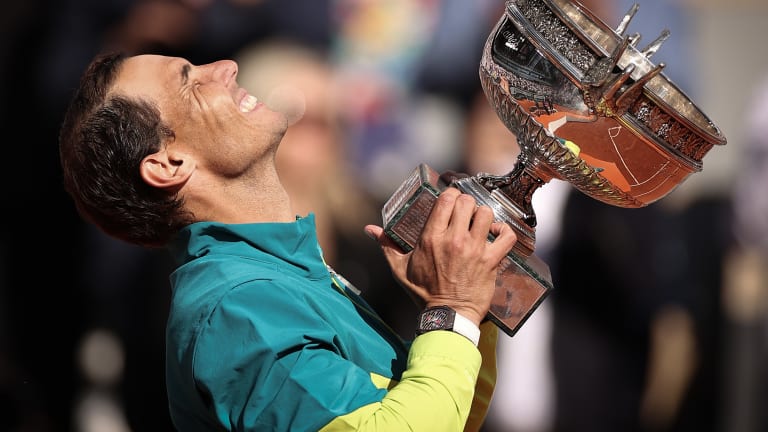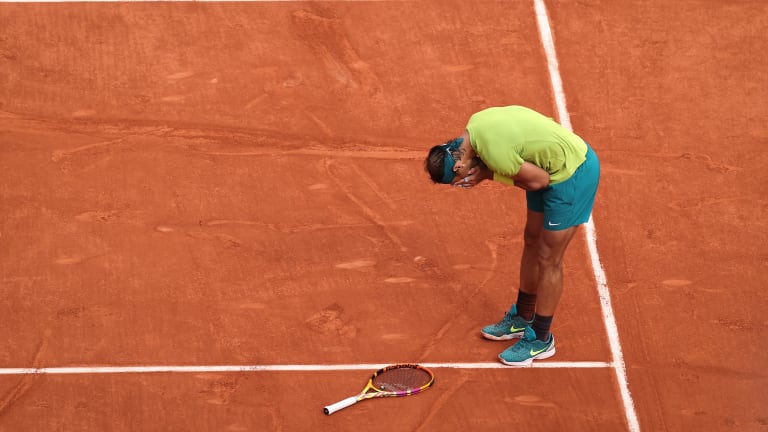Roland Garros
The eternal now of Rafael Nadal: A journey of endurance, patience, and suffering for the Roland Garros title
By Jun 05, 2022Roland Garros
French Open organizers introduce draw to access ticket sales
By Jan 07, 2025Roland Garros
Coaches Corner: Juan Carlos Ferrero proves essential to Carlos Alcaraz's Roland Garros success
By Jun 14, 2024Roland Garros
What’s next for Novak and Nadal? Four ATP storylines after the Paris fortnight
By Jun 10, 2024Roland Garros
Naomi’s resurgence, Iga on grass: Four WTA storylines after the Paris fortnight
By Jun 10, 2024Roland Garros
Carlos Alcaraz becomes the clay-court champion that he—and we—always knew was possible
By Jun 09, 2024Roland Garros
Coco Gauff wins first Grand Slam doubles title with Katerina Siniakova in dream team debut
By Jun 09, 2024Roland Garros
Coco Gauff is a Grand Slam champion in singles and doubles, exceeding her own expectations
By Jun 09, 2024Roland Garros
From Rafa to Iga: as one owner of Roland Garros departs, a new one has moved in
By Jun 08, 2024Roland Garros
Roland Garros men's final preview: Carlos Alcaraz vs. Alexander Zverev
By Jun 08, 2024Roland Garros
The eternal now of Rafael Nadal: A journey of endurance, patience, and suffering for the Roland Garros title
A year ago, there was concern if Nadal would ever play again. At Roland Garros, once again, here he is — like no one in tennis history, simply and powerfully occupying an eternal presence.
Published Jun 05, 2022
Advertising
Advertising

There is never any doubt of Nadal’s heart and mind. But in the wake of all he’d been through, how would Nadal’s body hold up?
© Ryan Pierse
Advertising

"Have been emotional victories, without a doubt, unexpected in some way,” said Nadal. "Yeah, very happy, no?"
© Ryan Pierse